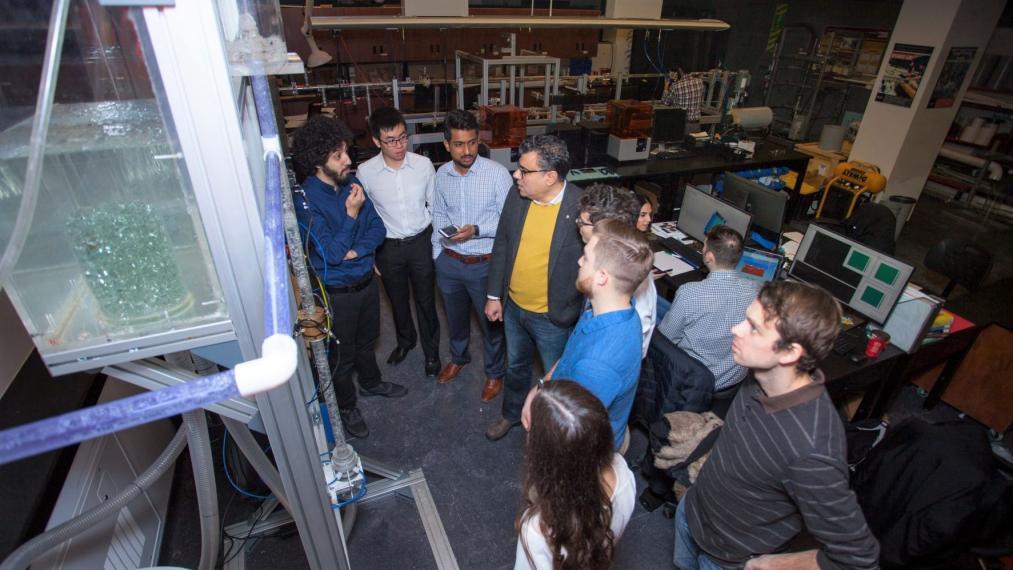U of G researcher using technology to improve sustainability of indoor farming

Pump technology developed by a University of Guelph researcher may help save almost half of the energy used for irrigation by Canada’s growing number of indoor farms, including greenhouses, vertical farms and hydroponics facilities.
Dr. Wael Ahmed, a professor in the School of Engineering within the College of Engineering and Physical Sciences, has already made waves in the aquaculture industry with his energy-saving water pump, now commercialized by the company FloNergia under the name FloMov™. FloMov™ is saving fish farmers 50 to 70 per cent of the energy used in conventional systems, while reducing operating costs, increasing aeration efficiency and improving water quality.
“With rapidly increasing demand for food and spiralling costs of energy, I have been focused on creating new technologies to improve the sustainability of different food production systems,” Ahmed says.
Adapted for indoor farms, his new airlift pumping technology called FloLft uses air, requires no moving parts or lubrication, creates no noise or vibrations and needs little maintenance. The technology needs lower capital investment than traditional pumps and integrates easily with growing columns for vertical farming. The new pump enables high flow rates and has a high head, meaning it can effectively push water upward, says Ahmed.
Besides its promise for indoor farming, the new FloLft pump may benefit other agri-food applications, such as food processing and production, he says.
The pump can move heavy, high-viscosity (resistant to flow) or non-Newtonian fluid mixtures (that can change from runny to thick when under stress), which makes it ideal for transferring muddy, sand-laden or other food waste to treatment systems, Ahmed says.
Industrial partners and specialists from the Ontario Ministry of Agriculture, Food and Rural Affairs (OMAFRA) have provided vital product development support as researchers evaluate farmers’ needs and optimize the pump design.
In developing and commercializing the FloMov™ and FloLft pumps, Ahmed has received support and funding from the U of G Research Innovation Office and the Ontario Agri-Food Innovation Alliance, a collaboration between OMAFRA and the University.
“The Ontario Agri-Food Innovation Alliance played an essential role in creating these new products and allowed applied research in my lab to turn into a product ready for the market,” Ahmed says. “The funding makes it possible to test, validate and prototype out-of-the-box ideas like mine. This made it easy to introduce new products to end users through funded field trials.”
The laboratory is validating FloLft prototypes before the pump is tested under real-world conditions.
Ahmed is confident that the high-efficiency pump design can help reduce energy use –which accounts for up to 10 per cent of total greenhouse production costs – to improve the environmental and financial sustainability of indoor farms.
This research was funded by the Ontario Agri-Food Innovation Alliance, a collaboration between OMAFRA and the University of Guelph.